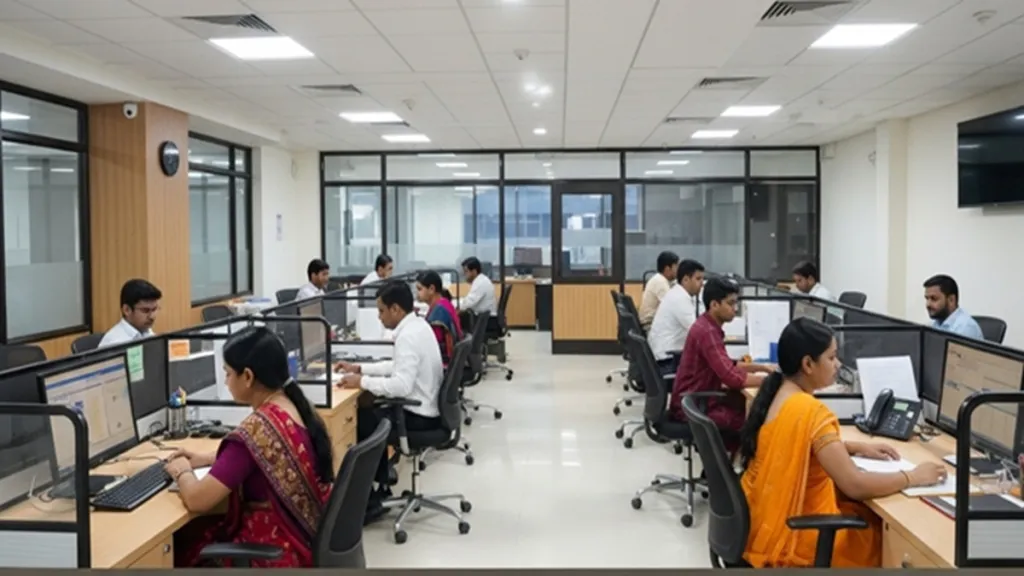The central government has taken another big step towards increasing transparency and efficiency in government functioning. The Department of Personnel and Training (DoPT) has recently issued an order to implement e-Service Book in all central ministries and departments. Under this, now the service related information of every government employee will be digitally recorded on the e-HRMS 2.0 portal and the same will be considered as the official record.
What is e-service book and why is it necessary?
The account of the entire journey of any employee in government service from appointment to retirement is recorded in the ‘Service Book’. It contains details of promotion, transfer, salary revision, leaves and other administrative activities. Earlier this record was kept in paper form, due to which there were many problems in data security, tracking and transfer.
Now the government has decided to make it completely digital. This information will not only be safe on the e-HRMS 2.0 portal, but it can also be accessed from anywhere, at any time. This will not only provide convenience to the employees, but will also make work easier and faster for the departments.
Government’s instructions to various ministries
The Department of Personnel has instructed all ministries and departments to:
-Immediately enter the service books of all employees in digital form by logging on to the e-HRMS 2.0 portal.
-Fully verify and update the data.
-Once the process is completed, physical service books should be phased out.
-The e-service book should be recognized as the official record.
This change not only strengthens the ‘Digital India’ mission, but also promotes transparency, accountability and efficiency in government services.
Other major steps taken recently for government employees and pensioners
Along with the e-service book, the government has taken many such decisions in the last few months, which are directly benefiting government employees and pensioners:
Reform of CGHS (Central Health Scheme)
The government has recently made several reforms regarding CGHS. Now more private hospitals are being included in it and the facility of cashless treatment for pensioners has been strengthened. This will provide health relief to lakhs of employees and their families.
Option to return to OPS (Old Pension Scheme)
Employees in some central services have also been given the option to convert from NPS to OPS, especially in cases where death or permanent disability occurs during service. This step further strengthens pension security.
Increase in Dearness Allowance (DA)
In January 2025, the dearness allowance of central employees was increased by 2%, taking the current rate to 48%. It is helpful in reducing the impact of inflation and helps in maintaining the purchasing power of employees.
Also read: 8th Pay Commission: Central govt employees’ salary to rise 3 times from 2027? What we know so far
Now all eyes are on the 8th Pay Commission
The 8th Pay Commission is likely to be announced by the Central Government in the financial year 2025-26. The employees and organizations are continuously demanding this. If this commission is formed, it can increase the basic salary of the employees, restructure the allowances, and bring major changes like merging DA into the basic pay.
Although some reports are also saying that the 8th Pay Commission can be implemented only in 2026 or later, but its preparation has started at the government level.
Summing up…
Technological changes in government functioning are no longer a need, but have become a necessity. The implementation of e-service book is a big and welcome step in this direction. This will not only make it easier to manage the records of employees, but will also save time in matters like transfer and promotion.
Along with this, CGHS, OPS options, DA hike and the upcoming 8th Pay Commission — all these steps indicate that the government is serious about the welfare of employees and security of pensioners.

